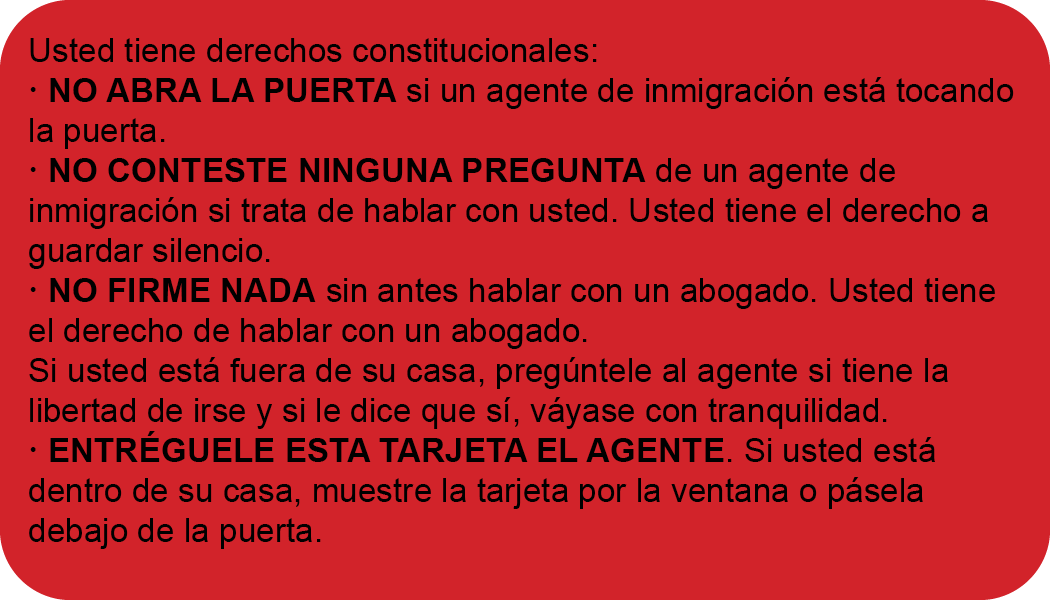ICE in North Carolina
In November, the U.S. Immigration and Customs Enforcement (ICE) moved into Charlotte to deploy Operation Charlotte’s Web. In addition to Charlotte, they appeared in Raleigh, Durham, Chapel Hill, Gastonia, Winston-Salem, and other areas, including Burke County.
Although many reports indicate ICE has moved on to Atlanta and Louisiana, now is not the time to let our guard down. As Andrew Willis Garcés, a senior strategist with Siembra NC, noted, “They want you to feel fear, panic, terror, to not know where the danger is.” Siembra NC is a grassroots advocacy organization supporting immigrants and Latino communities in the state.
How you can help in
Burke County
Call or text Siembra NC, a powerful grassroots organization defending our immigrant community across NC, if you spot ICE operating in your area. Their number is 336.543.0353.
Follow the OJO website. With community input, Siembra NC monitors all ICE actions and movements on the OJO website.
Contact Hands of Hope or 828.600.9393, to let their network know of sightings in your area. Also, you can donate food, non-perishables, and household essentials.
North Carolina is home to just over 1M immigrants or 9.3% of our population. Here in Burke County, they make up nearly 15% of the population. Immigrants contribute $11.4 billion annually in state taxes and $33.7 billion to the state’s economy.
In the United States, EVERYONE, regardless of immigration status, is entitled to certain protections under the Constitution. These include:
The Fourth Amendment protects people and their property from unreasonable or unjustified searches, requiring probable cause and search warrants.
The Fifth Amendment protects people from self-incrimination, meaning that detained individuals cannot be required to speak.
A violation of either would directly infringe on your constitutional rights. However, even if your rights are being violated, it is important not to resist officers or agents, as this could escalate the situation.
If you are an observer of an attempted ICE raid or arrest, you have the right to film and record federal law enforcement’s actions in public areas and private ones where you are granted access. Keep at least 25 feet from the incident to not directly interfere with their actions, or you could face an obstruction of justice charge.
DemocracyNC recommends following the SALUTE guide when observing ICE for specific details.
Size, or the number of agents and vehicles.
Activity, or what the agents are specifically doing.
Location, including specific addresses or intersections.
Uniform, or what the agents are wearing.
Time, including the date of the incident.
Equipment, including types of vehicles, weapons, or tools.
The ACLU also offers an FAQ page about immigrants’ rights if approached by federal law enforcement.
Lastly, the Immigrant Legal Resource Center has put together “Red Cards”, also known as “Know Your Rights” cards, with information on how to protect your rights when encountering ICE agents. Translated versions are available in multiple languages and are designed to help individuals understand their rights when interacting with immigration officers.


